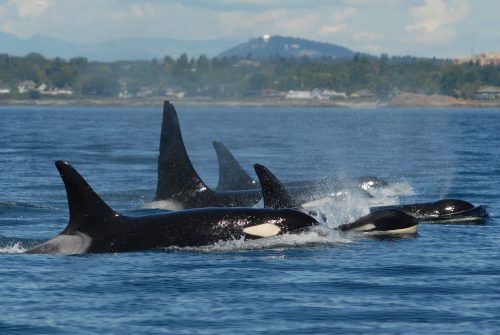Humans, pilot whales, and killer whales are the only three species known to go through menopause. It has long been a mystery why menopause is evolutionarily adaptive, but a recent study from Exeter University suggests that menopause may have evolved in killer whales because of the reproductive competition between mothers and daughters.
Killer whales live in family pods consisting of a matriarch and several generations of her offspring. As a result, older females can ensure that their genes are passed on by helping to raise their daughters’ calves, as well as by having their own. But why do older females stop reproducing altogether? According to the study, when a mother and daughter each have a calf around the same time, the older female’s calf is 1.7 times less likely to survive than the younger female’s calf. A matriarch may be more successful at passing on her genes if she helps her daughters instead of competing with them.
Killer whales and humans have similar family structures, so reproductive competition may explain why only they undergo menopause. However, Stephen Stearns of Yale’s Ecology and Evolutionary Biology department cautions against jumping to conclusions. “There are probably other species in which degree of relationship increases with age but menopause has not evolved,” Stearns said. He notes that scientists have not refuted other possible explanations for the phenomenon.
The Exeter team hopes to learn more about patterns of whale behavior using drones. “How do individuals compete with each other and help each other survive?” asked Darren Croft, the paper’s lead author.

